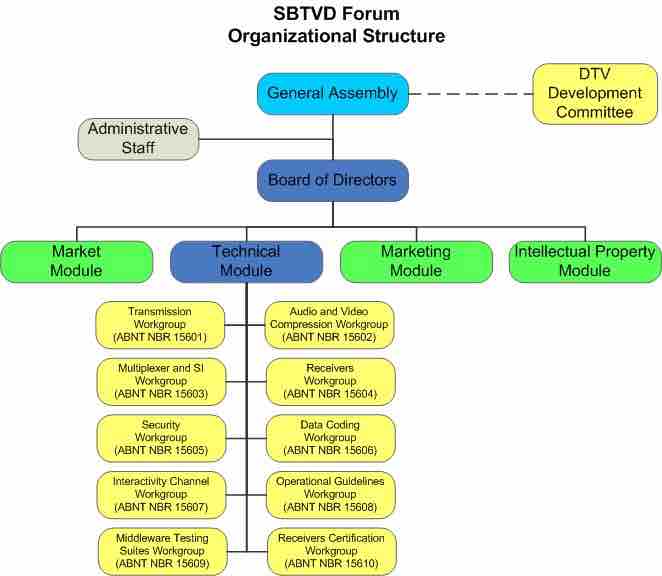Defining Coordination
Coordination is the act of organizing and enabling different people to work together to achieve an organization's goals. It is a managerial function in which different activities of the business are properly adjusted and interlinked.
Employees within the functional divisions of an organization tend to perform a specialized set of tasks, such as engineering. This leads to operational efficiency within that group. However, it can also lead to a lack of communication between various functional groups within an organization, rendering the organization slow and inflexible .

Organizational structure
This is an example of an organizational structure. At a high level are multiple functional groups, or "modules"—technical, marketing, and intellectual property. The linked working groups (e.g., data coding workgroup, security workgroup, and audio and video compression workgroup) within the technical functional group likely have coordinated functions.
Increasing Coordination
Coordination is simply the managerial ability to maintain operations and ensure they are properly integrated with one another; therefore, increasing coordination is closely related to improving managerial skills. The management team must pay special attention to issues related to coordination and governance and be able to improve upon coordination through effective management.
Increasing coordination internally can be accomplished by keeping all moving parts of the organization on the same page. There are a number of ways to improve upon the coordination of different departments, work groups, teams, or functional specialists. These include creating a well-communicated and accurate mission statement; clearly defining strategic objectives; monitoring and evaluating each functional group; providing company-wide updates and communications from each department; and, wherever possible, promoting cross-departmental meetings and projects. While this list is long and complex, the underlying concept is relatively simple: managers should strengthen communication across all facets of the organization to increase the level of integration between each moving part.
Structural Implications
In practice, coordination involves a delicate balance between centralization and decentralization. However, maintaining coordination does not necessarily imply that decision-making processes are centralized or that actions are carried out without the support of employees. Put simply, it is important to ensure that there is a person or team in place that takes responsibility for general tasks.
If there is a lack of coordination, there is a risk that responsibility will become dispersed and tasks will be left unclaimed. Organizing accountability for every task helps to ensure that efforts are tangibly coordinated and provides structure to operational expectations. Structure is a central determinant of effective coordination across an organization as it enables communications, underlines responsibilities, and provides concrete authority in decision-making.